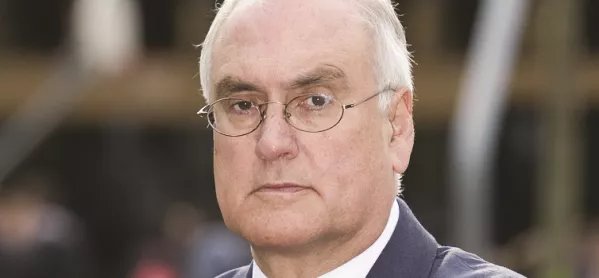Ofsted to call for action on teacher shortages and regional divide in school standards

National action is needed to address teacher shortages and regional differences in school standards, Ofsted’s chief inspector will say today.
Sir Michael Wilshaw will warn that continued staff shortages in key subjects are being made worse by the number of newly-qualified teachers leaving to teach abroad or in the independent sector, as he introduces his fourth Ofsted annual report.
The chief inspector will call for financial incentives to get trainees to start their career in the areas and schools that need them most, including the possibility of a form of “golden handcuffs” to encourage teachers to keep on working in the state system that trained them.
But Christine Blower, the NUT general secretary, said that the handcuffs idea would not solve a recruitment problem she claimed was partly caused by the “punitive nature of Ofsted inspections”.
Sir Michael will also condemn a lack of political will which he says is holding back improvement in schools in the worst performing areas of the country
He is expected to describe the high concentration of underperforming secondary schools in the North of England and the Midlands as “deeply troubling”,
Secondary pupils in these two regions are much less likely to attend a school rated “good” or “outstanding” by Ofsted than their counterparts in the South.
Sir Michael will argue that the divide - which sees well over 400,000 children in the North and the Midlands going to a secondary rated less than good - cannot be explained away by the higher levels of economic deprivation.
He will point out that there is no difference in the quality of primary schools across the country or in the achievement of 7-year-olds and 11-year-olds.
He will say there is now an urgent need for the same type of collective action - by local politicians, officials and headteachers - that led to improvements in London secondaries.
Today’s report will highlight 16 local authority areas in England where fewer than 60 per cent of the children attend good or outstanding secondary schools, and where children make less than average progress and achieve lower than average grades at GCSE. All but three of these are in the North and the Midlands, and many of them are satellite towns of major cities.
Sir Michael will say that if cities like Manchester, Leeds and Sheffield are to be the engine rooms of a Northern Powerhouse, they need to work with the towns on their borders to raise attainment and close skills gaps across a wider area.
Education secretary Nicky Morgan said: “There are now record numbers of pupils being taught in good or outstanding schools.
“This progress should not be ignored, but like Sir Michael Wilshaw we believe more needs to be done to deliver educational excellence everywhere and tackle pockets of underperformance, so that we can extend opportunity to every single child.
“That’s why we are introducing new measures to transform failing and coasting schools, funding the best academy chains to share excellence in struggling regions in the North and creating a National Teaching Service - sending some of our best teachers to the areas that need them most.”
Mary Bousted, general secretary of the Association of Teachers and Lecturers, said: “Sir Michael’s recognition that the London Challenge, with its emphasis on school collaboration rather than competition, was highly effective in transforming under-performing London schools is an embarrassment to the government.
“The government has engineered a fragmented education system in England where too many schools are isolated and lack the support, which local authorities provided.”
Want to keep up with the latest education news and opinion? Follow TES on Twitter and like TES on Facebook
Keep reading for just £1 per month
You've reached your limit of free articles this month. Subscribe for £1 per month for three months and get:
- Unlimited access to all Tes magazine content
- Exclusive subscriber-only stories
- Award-winning email newsletters



